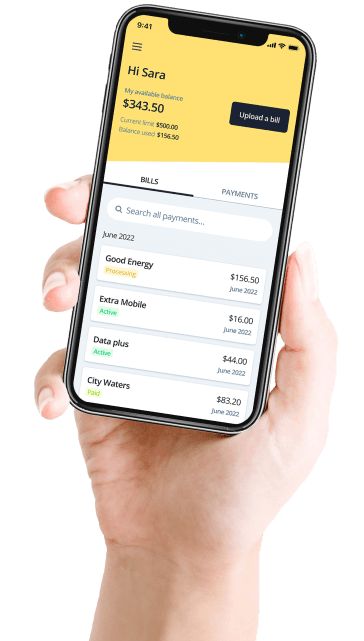Unfortunately, underestimating retirement has become the norm for a lot of us. In this blog, we'll talk about how you can start retirement planning now.
From being preoccupied with your mortgage to keeping up with the cost of children, saving for retirement beyond your superannuation may be the last thing on your mind. However, under preparing for retirement could mean having to work longer than intended. A study by Industry Super Australia found that the majority of super accounts aren’t up to scratch, with 50% unable to make additional contributions to their super fund.
Aside from being able to maintain your lifestyle, you’ll also need to factor in any health or medical expenses you may need in the future. So if you think it’s time you took your retirement plan seriously, read on to find out how. We’ll share the amount you’ll need to retire, any insurances you might need and what you can do if your retirement fund isn’t where it should be.
What age should you retire?
The age you decide to retire is entirely up to you, as there is no compulsory retirement age in Australia. However, the age you intend to retire should depend on a few factors, such as your health, financial situation (if you still have a mortgage or other personal debt), whether you are married or single and the age you can access your superannuation fund.
Before you decide to retire, it’s important to consider the lifestyle you’d like to have in retirement and whether your super balance will be sufficient. Other questions to ask yourself are:
- Do I have any assets beyond superannuation? (eg. property, shares, a term deposit or savings account)
- Would I be willing to sell my home and downsize?
- Will I have any ongoing health or medical expenses?
- Do I want to travel or participate in any activities?
It’s important to take all these things into account, so you can be sure you’ll be able to keep up financially.
When can I access my super?
The age at which you can access your super depends on your preservation age, which is determined by your birthday.
| Your date of birth | Preservation age |
|---|---|
| Before July 1 1960 | 55 |
| 1 July 1960 - 30 June 1961 | 56 |
| 1 July 1961 - 30 June 1962 | 57 |
| 1 July 1962 - 30 June 1963 | 58 |
| 1 July 1963 - 30 June 1964 | 59 |
| After July 1964 | 60 |
If you’ve reached your preservation age and do not wish to retire, you are still able to access portions of your super through regular payments, called a transition to retirement income stream (TRIS). The rules for a TRIS are the same across account-based pensions and SMSFs, where 10% of the pension total is available each year in income."
The big benefit of using a transition to retirement pension is the financial flexibility it provides, as you can withdraw the funds whenever you need. One thing to keep in mind though is that you are only able to access between 4-10% of your super each financial year.
How much money will you need for your retirement?
Again, this will depend on the lifestyle you’d like to have when you retire. Will you maintain a modest lifestyle? Or do you intend to travel and take up new leisure activities? It might be worth doing your research on different activities to find out the average costs.
According to the Association of Superannuation Funds of Australia (ASFA), as of March 2021, if a couple at the age of 65 were to retire today, they would need $62,828 annually for a comfortable lifestyle and $40,829 for a modest retirement. On the other hand, a single person retiring today at 65 is estimated to need $44,412 annually for a comfortable retirement or $28,254 each year for a modest lifestyle.
Just keep in mind that these figures are a rough estimate and that you may need more or less to maintain your desired lifestyle.
What to do if you don’t have enough money to retire
Knowing you might not have enough money to retire to your desired lifestyle can be daunting, but there are a few things you can do to boost your retirement fund. Get the ball rolling by checking in on your super fund and comparing your balance with the suggested amount for a person your age. If you are below the suggested amount, try to make additional contributions wherever you can.
If you are still working full-time, another option might be to consider a salary sacrifice. This is a benefit offered by many employers where an employee can agree to receive less take-home income in return for perks, like additional contributions to your super fund. This is on top of what your employer might pay you under the super guarantee. For example, if you currently earn $70,000 annually before tax and agree to contribute $10,000 to your super fund, your total income would become $60,000. If this is something you think your budget could handle, talk to your employer about the arrangement.
What type of insurance do you need when you retire?
During your working life, you might have already taken out a life insurance policy for your family in the event that you were no longer able to work due to sudden sickness, injury or if you were to pass away. But as you approach retirement and your children no longer depend on you, it’s important to ask yourself whether you will still need your life insurance policy.
There are many situations where you might consider keeping your life insurance policy. For instance, the payout will help cover any expenses you leave behind.
While a lot of us like to think we’d be able to retire debt-free, it more than often isn’t the case. According to the Australian Bureau of Statistics, almost half (47%) of Australians aged between 55 and 64 retired with a mortgage that wasn’t fully paid off. You might also have other debt, such as credit cards or a personal loan that needs to be repaid. If you have debts, it is good to consolidate and get on top of these as early as possible.
Other expenses you might not want to leave up to your family to pay are your funeral expenses, as these can typically range between $4,000 to $15,000. In this instance, your life insurance can cover all of this, taking the financial burden off your family. Nonetheless, whether you decide to keep your life insurance policy is up to you.
In Australia, many superannuation funds also come with low-cost insurance policies, which covers income protection, Total Permanent Disability (TPD) insurance and life cover. Although it’s worth noting that TPD cover generally ends at age 65, while life cover stops at age 70, so depending on the age you wish to retire, you might no longer be able to make a claim if something were to happen to you.
What will you do with your time?
One of the more difficult parts about retirement is having to adjust to a new routine, as you’ll have a lot more time on your hands than you did before. So before you officially retire, it’s important to have a think about what your days might look like. Since there’s no longer a rush to get to work, you might want to dedicate some time to doing some daily exercising in the morning.
Other ways many Aussies like to spend their retirement is to pick up a new hobby, try a new sport or learn a new skill. Jump online to find out whether there are any classes in your local area that spark your interest. Depending on what you’re interested in, there might be free or budget-friendly options around, which can help you save on costs.
If you did enjoy working with people and want to continue doing it on a scaled back level, mentoring or working on a casual or part time basis could be something worth considering. This way, you can enjoy the balance of having free time while still occasionally keeping busy. Travelling the world is another top pick for retirees, regardless of whether you’re single or in a couple. So pump yourself up by jotting down your travel bucket list!
If you’d like to read more about financial management or learn easy ways to reduce spending, from your groceries to your electricity bill, check out the rest of the Deferit blog!








